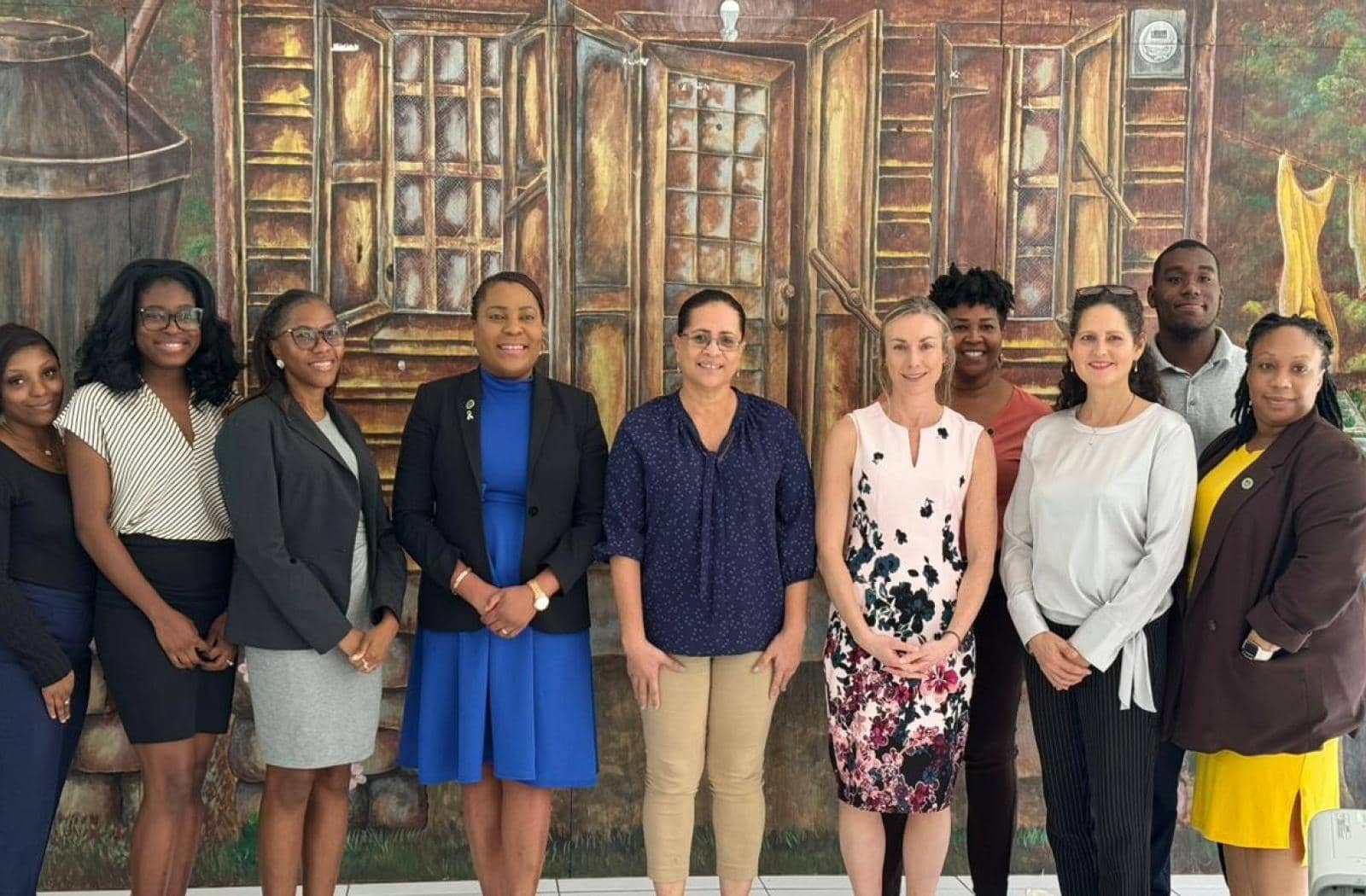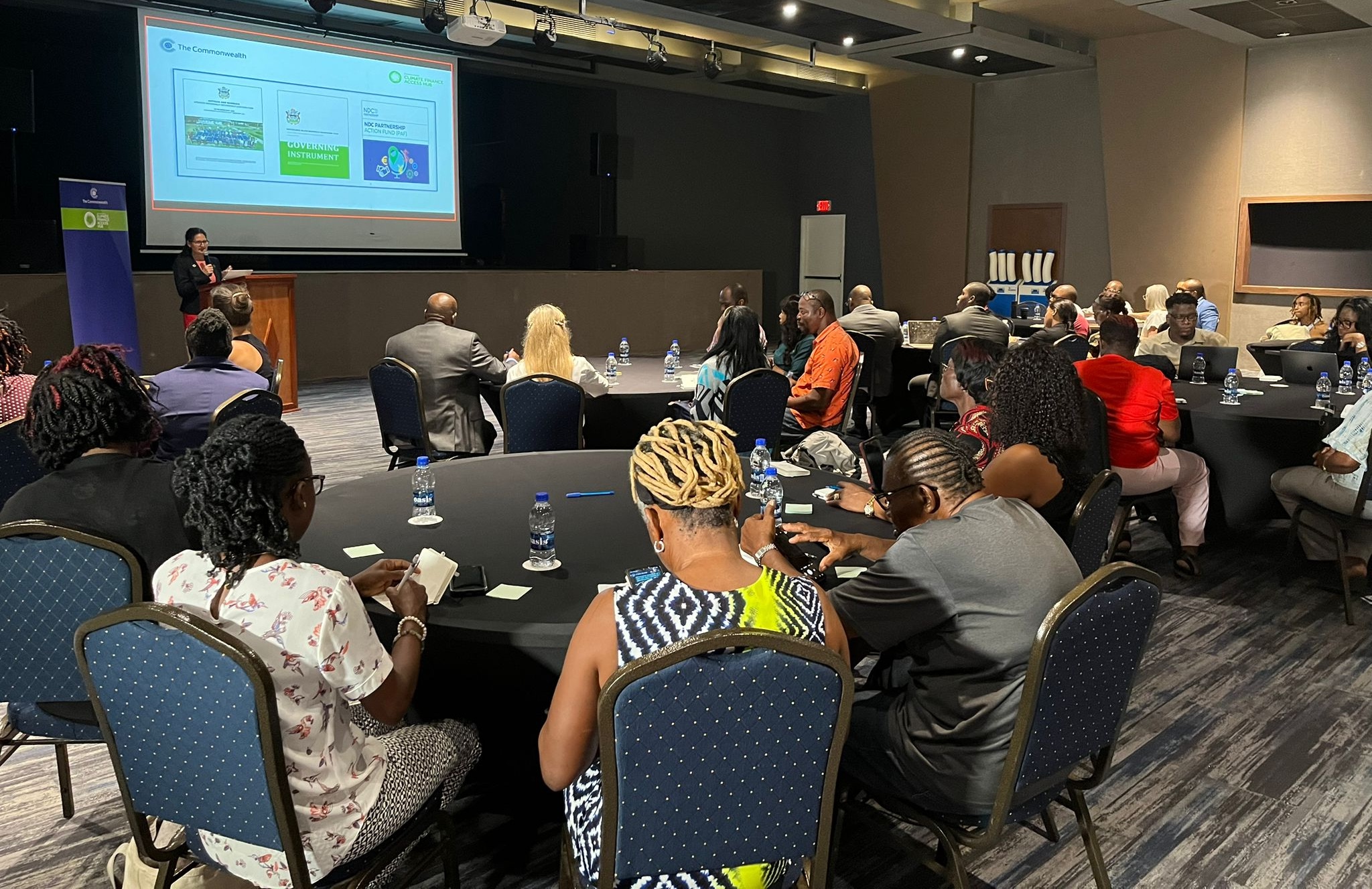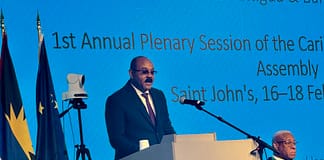
The Commonwealth Secretariat is working with the Government of Antigua and Barbuda to help build climate resilience in small and medium-sized businesses (SMEs) in the agriculture sector, with a focus on enhancing their access to funding to support their growth.
The project aims to improve the livelihoods of local farmers and assist the country in delivering on its wider national climate commitments.
Blended microfinance uses development funding to provide loans and grants, usually with an element of support – such as coaching and training- to help ensure businesses grow. The aim is to provide more accessible funding that can help to address social challenges and economic inequities.
A stakeholder validation workshop was recently held to present the findings of a study on the feasibility of setting up a gender-responsive blended financing window under the Sustainable Island Resource Framework (SIRF) Fund for SMEs. The event was hosted by the Commonwealth Secretariat and Antigua and Barbuda’s Department of Environment.
The Commonwealth Secretariat’s Climate Section, in partnership with its Gender Section and Debt Management Unit, is overseeing the assignment with technical input from Future Earth Ltd, the consultancy firm contracted to provide support. It includes a gap analysis of barriers and opportunities facing small to medium-sized businesses when accessing finance as well as stakeholder consultations.

Uzoamaka Nwamarah, Climate Change Adviser at the Commonwealth Secretariat stressed that effective climate finance is, by its nature, inclusive – taking on board the needs and requirements of women, men and young people. She added:
“We are excited to deliver the assignment with a view to building the country’s climate resilience and improving the livelihoods of farmers.”
Discussions at the workshop included whether the specific needs of farmers, including women-owned and women-led businesses, had been adequately considered. Possible strategies, new partnerships and action plans for the successful implementation of the financing window were also explored. During the event, the participants also discussed how the Commonwealth Secretariat could further support the operationalising of the financing window.
The workshop participants also explored whether in-kind financing, such as providing necessary equipment, would be useful. Another innovative approach was including in-kind contributions, for example – produce, as a repayment option.


Ambassador Diann Black Layne, Director of the Department of Environment of Antigua and Barbuda and Member of the Sustainable Island Resource Framework (SIRF) Fund said:
“Our intent is to have a fund that is fit-for-purpose and flexible enough to meet the needs and requirements of our beneficiaries including small and medium enterprises.
“We appreciate the collaborative work of the Commonwealth Secretariat, the NDC Partnership and Future Earth Ltd in walking with us on this journey.”
As a country member of the NDC Partnership, the Government of Antigua and Barbuda requested support to determine whether a blended financing initiative was feasible under the country’s Sustainable Island Resource Framework (SIRF) Fund.
The Commonwealth Secretariat, a member and implementing partner of the NDC Partnership, responded to this request with delivery under the Commonwealth NDC Programme. The NDC Partnership brings together countries and international institutions committed to fast-tracking climate and development action to the Paris Agreement and the Sustainable Development Goals (SDGs).
Advertise with the mоѕt vіѕіtеd nеwѕ ѕіtе іn Antigua!
We offer fully customizable and flexible digital marketing packages.
Contact us at [email protected]
















Where is Barbuda portion ? Are we left out as usual?
Let’s see if any farmer actually gets funding. The last set of funds went to friends in the government and sycophants, not the vulnerable and low income the money was received to help.
Comments are closed.